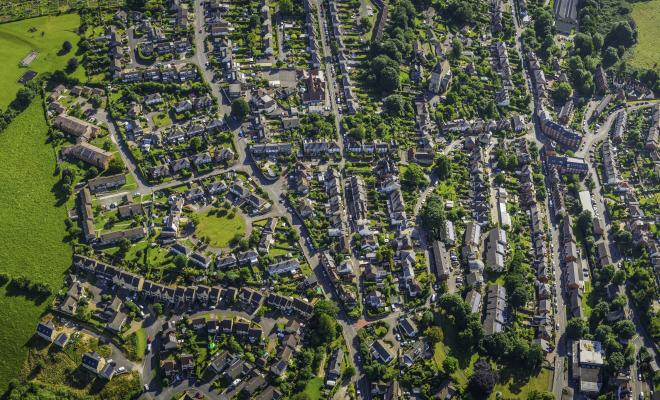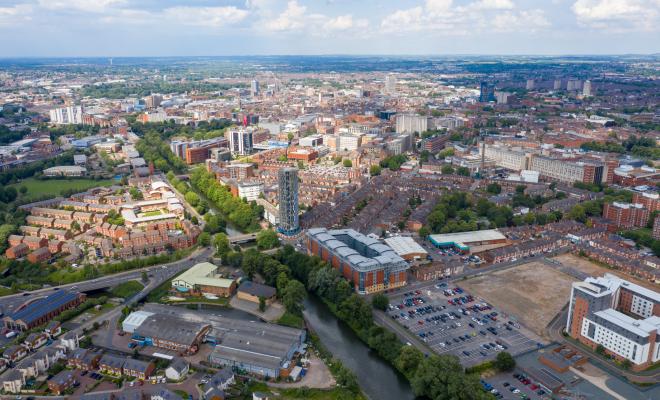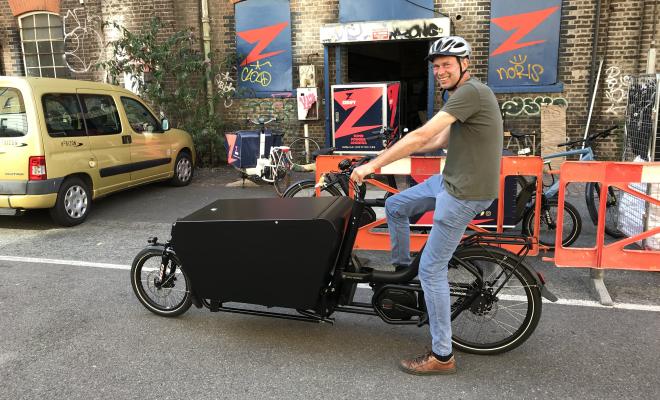Climate Action
20 Sep 2024
Learn how Cambridgeshire County Council is developing successful solar farms. Using less fossil fuel-derived energy forms part of Action 31 of the 50-point Climate Action Plan for Councils: to reduce the energy used by the council in its own estate.
20 Sep 2024
Learn how Stroud District Council is using development planning to cut car use. Making developments strategic like this is one of 50 climate actions for councils, under Action 28, to reduce the need to own and use a car by requiring that the location and design of new developments be accessible by safe cycling, walking routes and good quality public transport, and situated close to key services.
20 Sep 2024
Learn how Leeds City Council is making all its vehicles electric and helping residents and businesses do the same. Transitioning to electric vehicles is one of 50 climate actions for councils, under Action 25, to deliver a rapid transition of the council’s own fleet to electric vehicles.
20 Sep 2024
Learn how Leicester City Council’s active travel strategy is boosting bus use and cycling in the city. This investment forms part of the 50-point Climate Action Plan for Councils under Action 21, to prioritise transport investment in cycling, walking and public transport, with a priority of installing segregated cycleways on most roads, increasing space for pedestrians, and introducing a 20 mph speed limit in urban areas.
20 Sep 2024
Learn how Brighton and Hove City Council is pioneering electric cargo bikes for clean and efficient city-centre deliveries. This scheme forms part of 50 climate actions for councils under Action 26, to require an electric vehicle or bike to be used for deliveries to the council and encourage greener deliveries across the area by setting up an area-wide distribution centre.
20 Sep 2024
Learn how Durham County Council is encouraging a shift to electric vehicles by installing more than 200 charging points. This approach forms part of the 50-point Climate Action Plan for Councils under Action 20 – to enable a rapid shift to electric vehicles by installing electric vehicle charging points.
20 Sep 2024
Learn how Greater Manchester’s smart energy plan will improve energy performance and lower carbon emissions. This plan forms part of the 50-point Climate Action Plan for Councils under Action 19, to develop a heating and energy efficiency strategy for the area, including providing skills and training to increase local employment to aid recovery from the COVID-19 pandemic.
20 Sep 2024
Learn how Reading Borough Council is using planning to ensure new homes are built to zero-carbon standards. This is part of Action 16 under the 50-point Climate Action Plan for Councils. Through Local Plan policies, councils should require that new housing development is zero carbon by 2025, including the incorporation of renewable energy in the development, using low-carbon materials, and building to extremely high energy-efficient standards (higher than current national standards) using the Passivhaus standard or similar.
20 Sep 2024
Learn how Barnsley's community energy scheme tackled fuel poverty among older people and helped fund neighbourhood projects. Installing local renewable energy sources in council developments and within private and public sector developments is part of Action 32 in the 50-point Climate Action Plan for Councils.
20 Sep 2024
Learn how Hastings Borough Council has partnered with other East Sussex councils to help low-income residents become more energy efficient. Increasing the energy efficiency of homes is Action 14 of the 50-point Climate Action Plan for councils.









